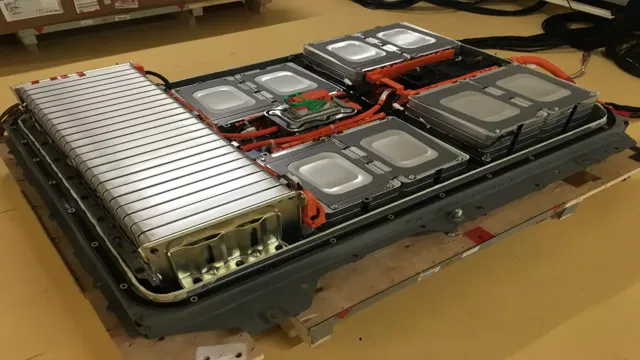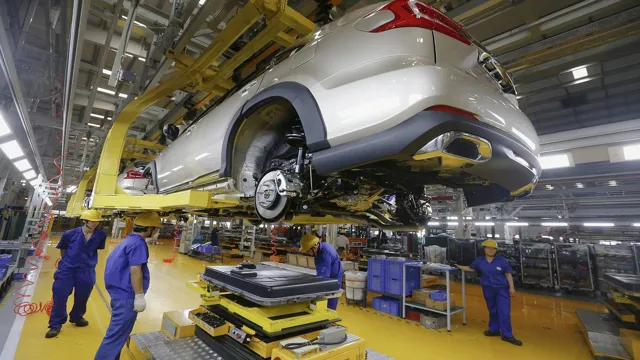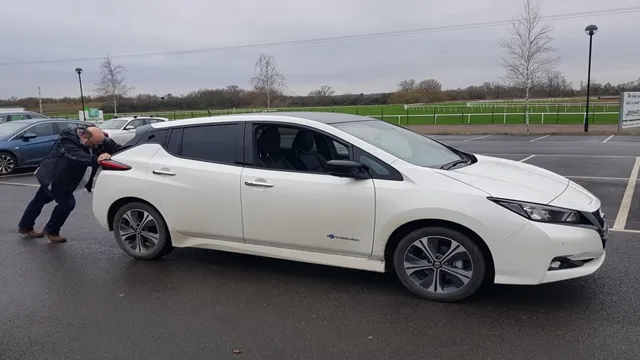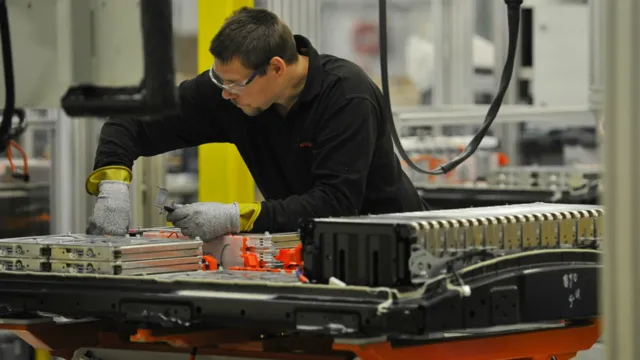Battling with Battery Problems in Electric Cars: Causes, Challenges, and Solutions
Electric cars are all the rage these days – a sustainable, eco-friendly, and pragmatic alternative to gas-guzzling vehicles. Unfortunately, despite their many perks, electric cars are not without their fair share of issues, especially when it comes to batteries. Electric car battery problems can cause a lot of headaches for car owners, from sudden drop-offs in range to limited charging capabilities.
In this blog, we will explore some common causes of electric car battery problems, as well as offer solutions to help you tackle them head-on. So, buckle up and come along for the ride!
Overheating
One of the major problems electric cars face is overheating of their batteries. This can happen due to a range of issues, but high temperatures can cause a rapid decline in battery life and performance, leading drivers to experience failures and power outages. While electric vehicles are designed to regulate, monitor, and manage the temperature of their battery packs, they can only do so much.
This is why engineers and manufacturers are working hard to develop better cooling systems and materials. The use of new materials like graphene and high thermal conductivity metals, along with advanced cooling systems, can help to mitigate battery overheating issues and make electric cars even more efficient and reliable for the future. With advancements like these, the problem of battery overheating may soon be a thing of the past, making electric cars a more viable and sustainable transportation option.
Effects of High Temperature on EV Batteries
When it comes to electric vehicle batteries, high temperatures can cause serious damage. Overheating can cause the battery to degrade faster and reduce its overall lifespan. This is due to a chemical reaction that occurs inside the battery cells when they are exposed to high temperatures.
The heat causes the electrolyte inside the battery to break down and the anode and cathode materials to degrade. This can exacerbate performance issues, reduce the battery’s capacity, and even lead to safety issues such as the risk of fire or explosion. To combat this, manufacturers often incorporate cooling systems into their batteries to regulate the temperature and prevent overheating.
It’s essential to ensure that EV batteries are not exposed to excessive heat for extended periods of time to maintain their optimal performance and longevity.
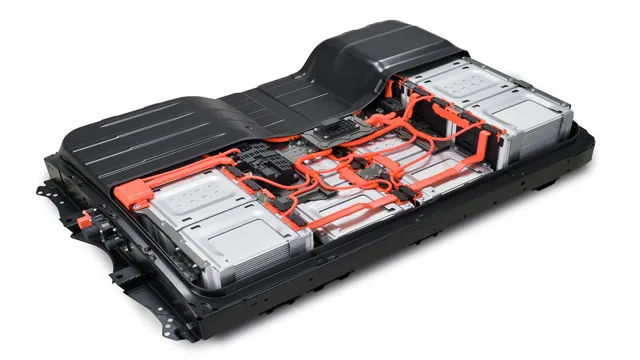
Causes of Overheating in Electric Cars
Electric cars have become increasingly popular in recent years due to their eco-friendliness and efficiency, but they are not without their challenges, one of which is overheating. Overheating occurs when the electric car’s battery or motor gets too hot and is unable to dissipate the heat. One of the main causes of overheating in electric cars is high ambient temperatures.
When electric cars are operated in high-temperature settings, such as in hot weather, the battery temperature rises, leading to overheating. Additionally, overcharging the battery can cause it to overheat, leading to damage and reduced performance. Battery degradation and improper cooling systems are also significant contributors to overheating.
It’s essential to keep electric cars well maintained, pay attention to the battery temperature, and avoid overcharging to prevent overheating and increase their longevity.
Cold Weather Performance
Cold weather can be a real problem for electric cars since low temperatures can cause a significant decrease in battery performance and range. When the temperature drops, the battery’s ability to hold energy decreases, and during cold snaps, drivers may find their vehicles’ range drops by up to a third. This decrease in range can be a major concern for electric vehicle owners, especially those who rely on their cars for daily commutes.
To combat the cold weather’s effects on batteries, some electric car manufacturers have developed heating systems to help keep the battery warm in the winter. These systems heat the battery before and during charging, ensuring that it’s ready to go when you are. Drivers can also charge their EVs indoors to keep the battery at a reasonable operating temperature.
Nevertheless, given these circumstances, it’s not surprising that battery performance is still a significant concern for electric car owners in colder climates.
Effects of Cold Weather on EV Batteries
When temperatures start dropping, owners of electric vehicles might find themselves worrying about the impact on their car’s battery life. It turns out that cold weather can have a significant effect on an EV’s range and performance. A drop in temperature leads to the slowing down of chemical reactions in electric car batteries, which translates to a decrease in the maximum charge and discharge rates.
This means that the car might not be able to go as far on a single charge or accelerate as quickly as it would in warmer conditions. Additionally, the energy needed to heat up the cabin can take a toll on the battery, reducing the overall range even further. Luckily, there are a few things drivers can do to mitigate these effects, such as keeping the car plugged in, preheating the interior while the car is still plugged in, and driving more conservatively.
It’s crucial for EV owners to take into account the impact of cold weather as they plan their trips and adjust their driving habits accordingly.
Ways to Improve Electric Car Battery Performance in Cold Weather
Electric Car Battery Performance in Cold Weather We all know that frigid temperatures can affect electric car battery performance. But did you know there are ways to improve it? One simple tip is to keep your battery warm by parking your vehicle in a garage or using a battery warmer. When the battery is warm, it can perform better and maintain its charge longer.
Another way to improve your electric car’s cold weather performance is to minimize the use of accessories such as the heater and defroster. These consume a lot of power and can drain your battery quickly. To keep your battery from losing its charge, try to preheat your car while it’s still plugged in.
And finally, consider investing in a battery with a higher rating for cold weather performance, so it can handle the extreme temperatures better. With these tips, you can make sure your electric car is ready to go, even in the coldest of winters, and keep your battery performing at its best.
Battery Degradation
If you own an electric car or are planning on buying one, it’s important to understand the issue of battery degradation. All batteries experience some level of degradation over time, and electric car batteries are no exception. This means that their capacity to hold a charge decreases, leading to reduced driving range and increased charging time.
The rate of degradation varies depending on factors like temperature, frequency of charging, and driving habits. However, manufacturers are constantly working on ways to improve battery lifespan and reduce degradation. As a consumer, it’s important to research and consider the battery warranty and maintenance policies before purchasing an electric car to ensure long-term satisfaction.
Nonetheless, the battery problem for electric cars is being addressed, and with advancements in technology and research, we can expect to see continued improvements in battery life.
Factors that Affect Electric Car Battery Life
Battery degradation is a primary factor that affects the life of electric car batteries. Electric car batteries electrochemically degrade over time, leading to reduced charging capacity and range. Factors that contribute to battery degradation can include overcharging, undercharging, exposure to extreme temperatures, and usage patterns.
The type of battery chemistry used also plays a role in battery degradation. Lithium-ion batteries, which are the most common electric car batteries, are susceptible to degradation due to a process called electrolyte oxidation. This process occurs when the battery is charged and discharged, causing the electrolyte to break down and oxidize.
To combat battery degradation, manufacturers use various methods such as thermal management systems and capacity buffers. Additionally, drivers can take actions to prolong battery life, such as avoiding fast charging, keeping the battery charged between 20%-80%, and avoiding exposing the battery to extreme temperatures.
Ways to Extend the Life of Your EV Battery
As the battery is the heart of an EV, it’s crucial to take care of it over time as it’s one of the most expensive components to replace. Battery degradation can happen over time and can ultimately affect the performance and range of your electric vehicle. To extend the life of your EV battery, it’s essential to avoid charging to full capacity frequently and instead aim for an 80% charge.
Also, keeping your battery between 20% to 80% can help reduce wear and tear. Using regenerative braking, not letting your battery drain completely, storing your EV in a cool, dry place, and maintaining proper tire pressure can all contribute to a healthier battery. Taking care of these habits can help to slow battery degradation, so you enjoy optimal performance and range for years to come.
Charging Challenges
One of the biggest challenges for electric car owners is the battery problem. While electric cars are touted for their environmental benefits, the battery life and charging difficulties can be a headache for owners. For instance, lithium-ion batteries used in electric cars can degrade over time and lose their capacity to hold a charge, reducing the vehicle’s range per charge.
Additionally, many parts of the world lack an adequate charging infrastructure. This can make it difficult for EV owners to find charging stations, and even if they do, the long charging times may be inconvenient. Nevertheless, with technological advancements, battery problems are slowly being addressed through new battery designs and faster charging options.
As battery technology continues to evolve, we can expect to see electric vehicles become more reliable and their range-per-charge increasing. However, until that time comes, it’s essential for electric car owners to plan their charging accordingly to maximize their vehicle’s efficiency on the road.
Common EV Charging Problems and How to Fix Them
EV Charging Problems Electric vehicles are an environmentally-friendly option with many benefits, but sometimes charging them can become problematic. One common issue faced by EV owners is slow charging, which can be caused by many factors, including the temperature of the battery and the type of charger used. Another problem that can arise is the lack of availability of charging stations, especially in remote areas.
This can lead to range anxiety, a fear of running out of power and being stranded. However, there are ways to fix these issues, such as using a more powerful charger or planning your route carefully to ensure that there are charging stations available. It’s important to be aware of these common charging problems and understand how to overcome them to ensure that your EV experience is as smooth and enjoyable as possible.
Conclusion
In conclusion, the battery problem for electric cars can be seen as the ultimate Catch-2 On one hand, we need larger and more efficient batteries to increase the driving range and make electric cars more viable for long distance travel. On the other hand, the manufacturing and disposal of these batteries presents a significant environmental challenge.
It’s a bit like needing more water to put out a fire, but being afraid of flooding the entire city in the process. The solution? We need to continue investing in research and development to find a sustainable and eco-friendly battery technology, while also focusing on reducing our overall carbon footprint. It may not be easy, but as they say, “where there’s a wheel, there’s a way”.
FAQs
What are the common types of battery problems faced by electric cars?
The common types of battery problems faced by electric cars include reduced range due to degraded battery capacity, inefficient charging, and high charging times.
How can I prevent battery problems in my electric car?
To prevent battery problems in your electric car, you can follow some practices like not overcharging the battery, avoiding deep discharges, avoiding frequent fast charging, and using the right charging techniques.
Can I replace the battery of my electric car when it gets degraded?
Yes, you can replace the battery of your electric car when it gets degraded. However, it is advised to get it replaced by an authorized service center to ensure the quality and performance of the new battery.
What is the approximate lifespan of an electric car battery?
The approximate lifespan of an electric car battery is around 8-10 years or 100,000-200,000 miles, depending on its usage, maintenance, and environmental factors. However, some electric car batteries have been known to last up to 15 years.


